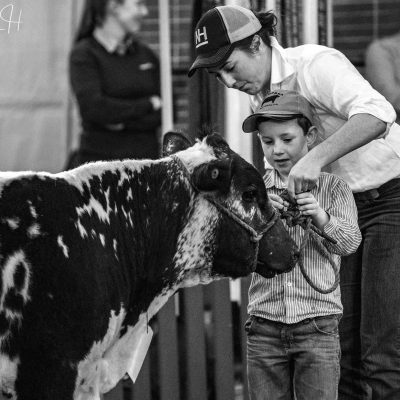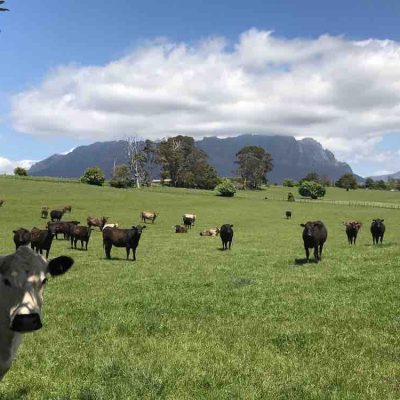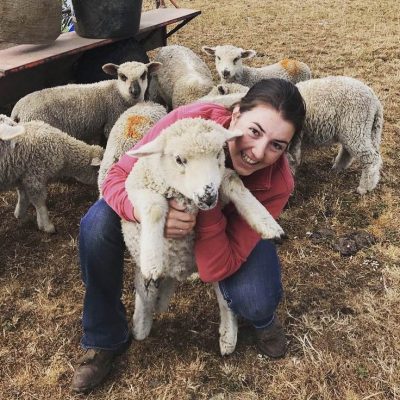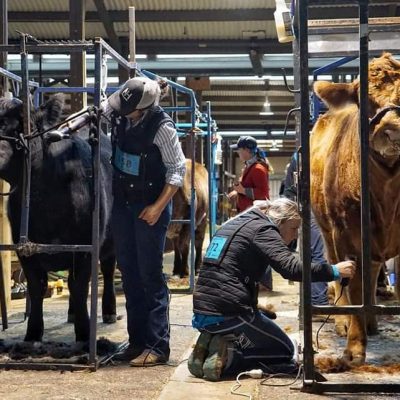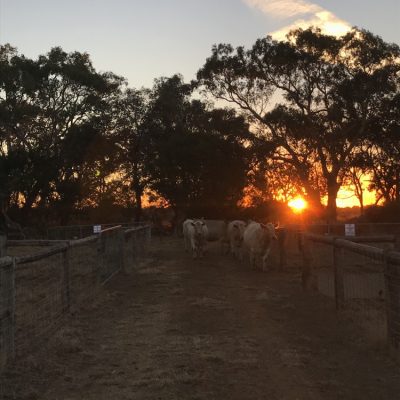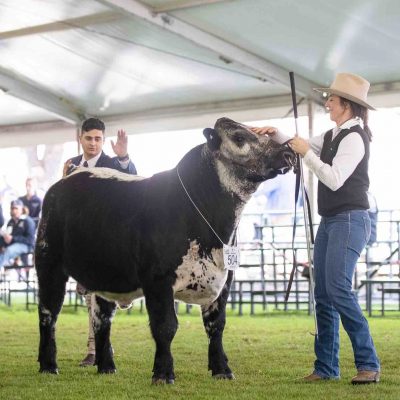Bubbly, driven and passionate, Dayna Grey comes from a long line of livestock traders and breeders, growing up on a beef cattle property in Sheffield on the north-west coast of Tasmania. Yet it was only when Dayna was told that “farming isn’t for females” that she decided to embrace a career in agriculture. At just 13, Dayna started showing cattle and went on to compete nationally and win scholarships for overseas industry tours, including the South Australian Junior Heifer Expo Herdsman Award. Now in her early twenties, Dayna has a Bachelor of Agribusiness, works in agricultural marketing with Thomas Foods International and is happiest when spending time with family.
When asked what concerned Dayna about the health and safety of those in rural industries and communities, Dayna said sobriety, especially while on the road. To alleviate the risks associated with driving under the influence, Dayna encourages people to appoint a ‘sober bob’ and to ‘throw a swag in the back’ – just in case a ‘couple of beers with the boys’ turns into something more. However, Dayna feels that younger people are becoming more safety conscious and that by focusing on listening just as much as talking, conversations about safety are becoming more effective.
How would you describe yourself in three words?
Bubbly, driven and passionate.
Tell me something interesting about yourself...
I grew up on a beef cattle property in Sheffield, on the north-west coast of Tasmania, where my family has been trading and breeding livestock for four generations.
I attended Sheffield School for 12 years, transferring to a regional college for years 11 and 12 before moving across the ditch to the mainland to complete a Bachelor of Agribusiness at Marcus Oldham College in Geelong, Victoria.
I have a twin brother and also a younger brother.
I have been heavily involved in showing cattle from the age of 13, competing on a national scale and receiving scholarships for overseas industry tours.
From a young age, I wanted to follow a career in the medical profession but as a young girl I was told “farming isn’t for females”, so I changed my career endeavours to prove them wrong and haven’t regretted it one bit.
Sheffield School’s slogan was ‘Mountains of Opportunities’ and to this day, for anyone who is passionate about anything, this rings true. You just have to ask questions – even if you think they might be silly ones.
I’ve worked in every state in Australia except the Northern Territory, and am now based in Adelaide to follow a career in agricultural marketing with Thomas Foods International, far from where I ever thought I would end up.
What's one achievement you are most proud of?
Being awarded the South Australian Junior Heifer Expo Herdsman Award, which included a trip to North America.
What makes you truly happy?
Family – moments with my immediate family are few and far between, making them extra special.
What do you love the most about being a rural woman?
The community! Not just being a rural woman though – being part of the industry as a whole. I love the support, opportunities, social events and scholarships that are available for everyone in any sub-industry of agriculture. I also love how you can walk into an event and not know anyone but someone you speak to knows someone you know.
Tell me about a time when you felt worried about your own or someone else’s health, safety or wellbeing on the farm, boat or in some other aspect of rural life.
Drink driving. Being at the forefront of the social scene, it’s a scenario that reoccurs on a weekly basis. Friday night at the pub and a ‘couple of beers with the boys’ can easily turn into an empty rum bottle. Too many times you hear excuses – “No taxis up here, love”, “Back roads home” – and it happens in all rural communities. Sadly, like many others, I’ve seen the fatalities, the injuries and the grief it can cause.
Alcohol is also hazardous in the workplace. People believing they are sober after a big night out are the most dangerous on property.
What practical things did or could you, your partner and / or others do to prevent someone from getting hurt?
From a drink-driving perspective, it’s all about communication. Sometimes one person has to be ‘sober bob’. For events, throwing a swag in the back ‘just in case’.
Car-pooling should be encouraged and plans made well and truly in advance.
“The timing of conversations about safety, the words spoken and how you listen make a powerful difference to the end result.”
Dayna Grey, Adelaide, South Australia AU Tweet this
Is there a time, place or scenario when your partner / workers are more willing to make changes to the way work is done?
In terms of work health and safety, the younger generation is becoming more safety conscious as there is a greater focus on incidents that have happened and how simply they could have been avoided (for example, by wearing a helmet, glasses, steel-toed boots etc).
From a drinking perspective, there are more workshops happening, particularly throughout schools. People affected by an incident as a result of drink-driving are beginning to tell their stories, openly showing and talking about the consequences.
In workplaces, including Thomas Foods International, conducting random drug and alcohol testing can reduce workplace risk.
Sadly, a lot of people don’t learn until it has affected them personally.
If you could give any advice to another rural woman about work health and safety in rural industries, about influencing change in business - or just in general - what would it be?
The timing of conversations about safety, the words spoken and how you listen make a powerful difference to the end result and can avoid you being perceived as nagging. Sometimes you have to be a part of the solution.
